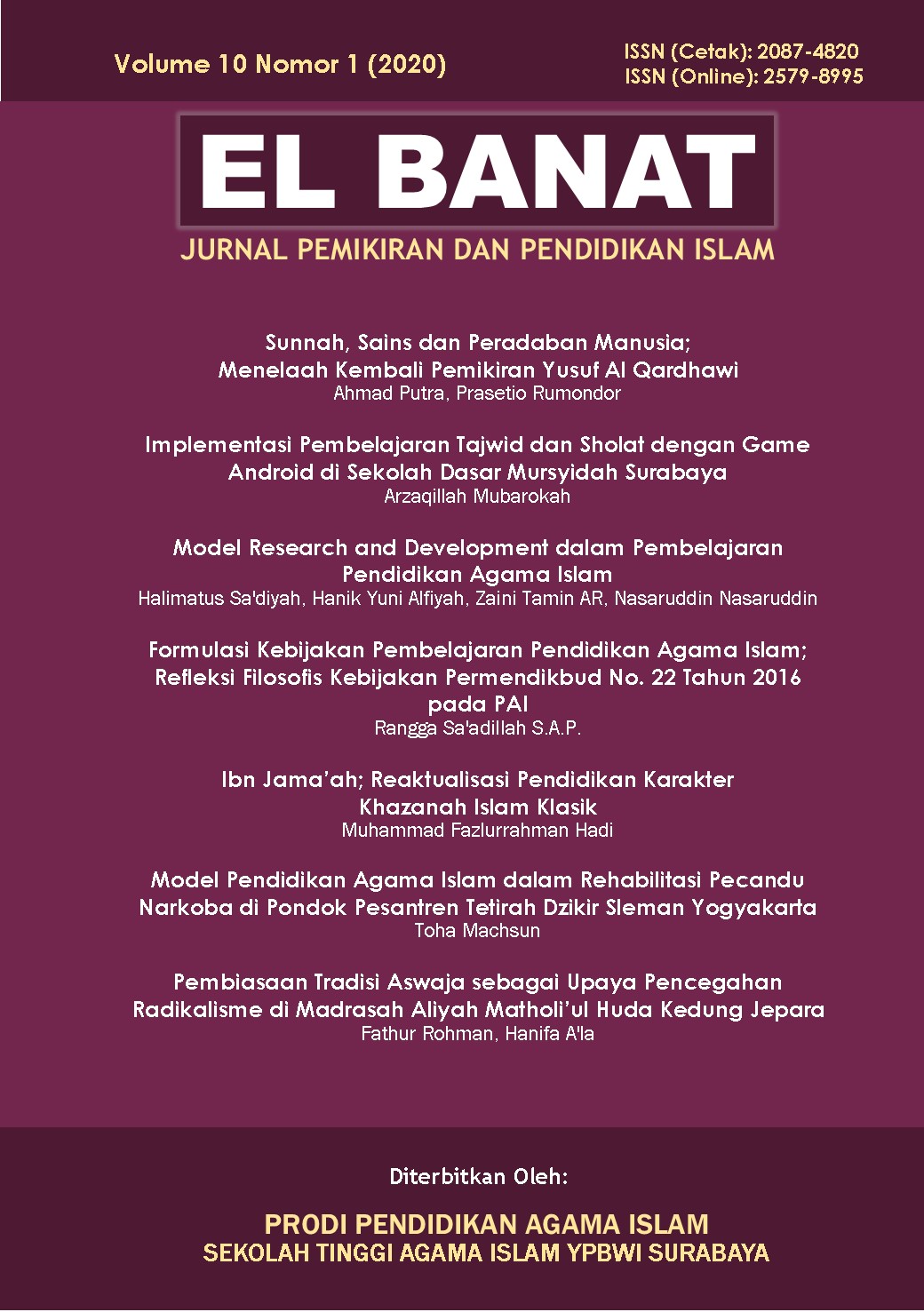Formulasi Kebijakan Pembelajaran Pendidikan Agama Islam; Refleksi Filosofis Kebijakan Permendikbud No. 22 Tahun 2016 pada PAI
Refleksi Filosofis Kebijakan Permendikbud No. 22 Tahun 2016 pada PAI
Abstract
This article formulates a standard education process policy in Permendikbud No. 22 of 2016 to be compatible with the characteristics of PAI by dissecting the epistemology of learning and taxonomy of learning through philosophical studies. PAI epistemology rests on the idea that knowledge belongs to God, so education also comes from God. Thus, Allah is the first and foremost educator and also the first teacher. As students are human. Humans are given provisions in the form of reason (reasoning) to formulate theories. This is a gift so that the intellect is used to perform contemplation accompanied by a confirmation of experience from the five senses - synergized with intuition so that the way of thinking used by humans is not separated from the tracks that Allah has arranged. The aim of PAI is to make students good. The word good is the key in formulating the objectives of PAI (transcendent taxonomy). With the mawdhu'I method, the root word "good" in the Koran refers to ahsana-yuhsinu, shaluha-yasluhu, and khayrun. Then these data are correlated and reduced - classified (taxonomy) into three domains. First, "good" is the relationship between humans and God (Illahiyyah / divinity / theocentric). The second "good" has to do with the relationship between humans and humans and social interactions in society (insaniyyah / humanity / anthropocentric). And third, "good" in terms of human relations with the universe (kauniyah / universe / ecocentric). A transcendent taxonomy to deal with spiritual, humanitarian crises and the destruction of nature.Copyright (c) 2020 EL-BANAT: Jurnal Pemikiran dan Pendidikan Islam

This work is licensed under a Creative Commons Attribution-ShareAlike 4.0 International License.

















